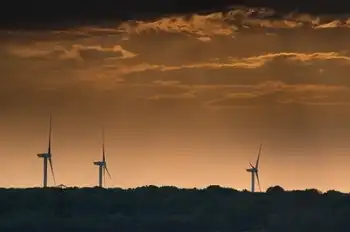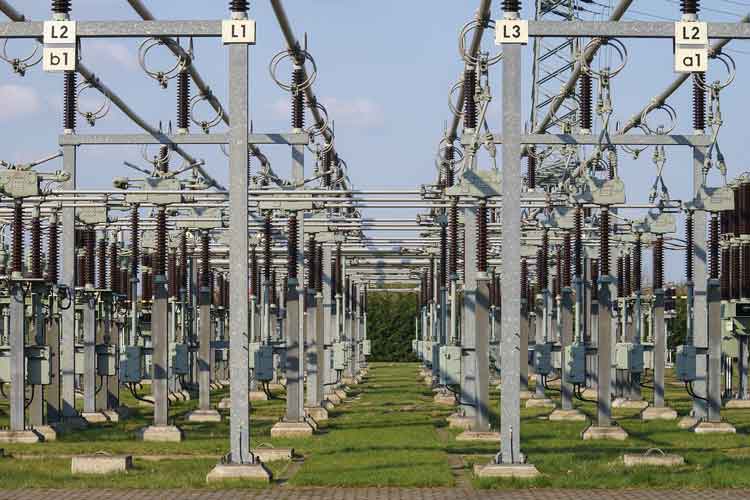Coal country has a message for Obama
On some patches of this quiet stretch of the Allegheny Plateau all that remains below are the pillars of coal left standing to prevent the ground above from collapsing when the area was mined starting a century ago to feed Andrew Carnegie's steel mills 100 kilometres north in Pittsburgh.
But Greene County still sits atop one of the world's richest coal deposits and more than 2,000 workers toil in half a dozen mines, one of them the largest U.S. underground operation. Open-top rail cars heaped with bituminous rock roll through Waynesburg all day long toward some of the 1,500 coal-fired plants in the United States that use the raw material to produce half of the electricity generated in the country.
Coal-based power, which is North America's leading source of greenhouse-gas emissions, illustrates the conundrum U.S. President Barack Obama faces as he heads to Copenhagen: He must somehow reconcile demands for U.S. leadership on climate change with the reservations of members of his own party, unionized U.S. coal miners and average Americans worried about the price of electricity going up and their country ceding economic ground to China.
Whichever side wins the better part of that argument will determine whether the U.S. emissions-reductions targets agreed to in Copenhagen turn out to be much more than more talk.
Mr. Obama's decisions will weigh heavily on places such as Greene County. In a country scarred by a devastating economic downturn, the recession cruised by mostly unnoticed in this region. Despite a modest slump in coal prices, almost no jobs were lost here. Paying an average of $75,000 (US) a year plus health benefits, coal jobs keep the local car dealerships and restaurants humming.
"If it wasn't for coal mining, I'd be closing my doors," opines Victoria Bruno, owner of Mickey's Men's Shop in Waynesburg, whose store sits just short of where High Street crests to afford a panoramic view of the Emerald Mine that sits on the edge of town and employs 700 people in the community of 4,200.
With Mr. Obama's presence in Copenhagen seen as potentially sealing the deal on an international treaty that would commit the United States to dramatically slashing its emissions by 2020, Greene County official Pam Snyder would like a word with him before he signs on the dotted line.
"I would tell him: 'Mr. President, you need to protect the environment, but you can't leave the coal industry behind in that process,'" warns Ms. Snyder, chairman of the county government, whose office wall is adorned with her framed delegate badge from the 2008 Democratic convention in Denver that crowned Mr. Obama the party's presidential nominee.
"What good would it do to [accept a deal] that would kill hundreds of thousands of jobs in this country?" Ms. Snyder asks. "What good would the stimulus package have been?"
While running to become president, Mr. Obama proclaimed his country "the Saudi Arabia of coal" and his vow to protect the industry won him an endorsement from the United Mine Workers of America. But in office, Mr. Obama is running up against an incontrovertible constraint. The President cannot meet his target of reducing the country's greenhouse-gas emissions by around 17 per cent below their 2005 levels within a decade without inflicting pain on coal workers, power utilities, electricity consumers - and the ordinary folks of Greene County who voted for him.
As it stands, the "clean coal" technology touted as a win-win solution by Mr. Obama remains little more than a scientific possibility. Hundreds of billions of dollars and an unknown number of years need to be invested before still unproven emissions-mitigation methods such as carbon capture and storage can be safely and economically deployed.
In the next decade then, the fate of Waynesburg and hundreds of American communities like it will depend on what kind of treaty comes out of Copenhagen and the shape of subsequent legislation to implement any accord.
At the Greene County Department of Economic Development, research assistant Marty Niverth concedes that the term "cap and trade" - the name for the principal method used to cut emissions in a bill adopted in June by the U.S. House of Representatives - draws mostly blank stares in these parts.
"There's not a lot of talk about it locally because no one has bothered to explain to us the exact ramifications of what could happen," he says. "I don't think [U.S. negotiators] did their homework before they went to Copenhagen."
Under a cap-and-trade scheme, firms such as power utilities would see a ceiling slapped on their emissions. The ceiling would be set lower every year and firms could surpass it only by buying pollution credits on the open market or from companies that had slashed their emissions to below their assigned limit. The price of permits would therefore rise each year as the supply declines.
"Cap and trade," university professor Paul Ziemkiewicz worries, "is a wild card that has an enormous potential for unintended consequences. Every time we've had a new level of environmental controls in this country there has been a progressive departure of industry to the Third World and the Second World."
Both Mr. Niverth and Prof. Ziemkiewicz, a scientist at the University of West Virginia, about 50 kilometres south of Waynesburg in Morgantown, voted for Mr. Obama, even contributing money to his campaign. They are emblematic of the moderate Democratic voters that the party cannot risk alienating as it heads into crucial congressional elections next fall.
Mr. Obama promises billions of dollars in subsidies and research funds to help generate so-called green jobs to replace those lost in fossil-fuel-dependent industries as a result of climate-change legislation. Evidence of one such successful transition abounds around Pittsburgh, which became a hollowed-out basket case with the collapse of the steel industry almost three decades ago only to rise again as a hub of innovation that Mr. Obama recently praised as "a bold example of a 21st-century economy."
But Mr. Niverth and Prof. Ziemkiewicz fear that any move to curb greenhouse gases in the United States without imposing equally exacting measures in the developing world will be a boon only to the economy of China.
Both men were nonplussed when Greene County's congressman, Democrat John Murtha, voted in June in favour of the House bill that embraces the same 17-per-cent emissions-reduction target articulated by Mr. Obama. But even those who disagree with the colourful 77-year-old Mr. Murtha, who has represented the region in Congress for 36 years, are cutting him some slack for now.
"There are multiple reasons why a congressman votes one way or the other. In this case, you had the party leadership pushing hard for that legislation," Ms. Snyder offers. "I did have a conversation with Mr. Murtha after that [House] vote and he understands there needs to be some tweaking to make sure the coal industry is not left behind."
Mr. Murtha's support for the House bill came only after the inclusion of "billions of dollars for carbon capture and sequestration technology that will ensure coal will continue to be America's primary fuel for electricity generation," according to a statement released by his office.
Another reason for his support: the prospect of "free" emissions credits awarded to coal-fired plants in the early years of a cap-and-trade scheme. That was not enough to placate the Pennsylvania Coal Association, however, which has warned that the House bill would lead to a 41-per-cent increase in electricity prices by 2030 (over what would occur in its absence) and cost the state as many as 97,500 jobs.
Almost four-dozen of Mr. Murtha's Democratic colleagues in the House voted against the legislation. Among those voting no were four Pennsylvania Democrats whose districts border Mr. Murtha's. In all, 11 of the state's 19 representatives in the House voted against the bill, which passed the 435-member assembly by only seven votes.
It is increasingly unlikely anything resembling the House bill can make it through the Senate, or at least not before next fall's congressional elections. While Democrats remain divided on climate-change legislation, Republicans are united in their opposition.
Many pundits predict Republicans will make gains in next year's midterm elections in places such as Pennsylvania, a swing state with large rural and urban populations that voted 55 per cent for Mr. Obama in 2008.
In addition to targeting several House seats in the state as well as the governor's mansion, the Republicans are intent on defeating Senator Arlen Specter, a former Republican who defected to the Democrats this year and who is facing a tough re-election bid in 2010. Though the full Senate has yet to take up climate-change legislation, Mr. Specter voted last month in committee for a proposed bill that would require even deeper cuts in emissions than the House legislation.
"We're absolutely opposed to cap-and-trade legislation," insists Michael Barley, a spokesman for the Republican Party in Pennsylvania. "As far as we're concerned, it's just another tax [on the state's] large and potentially growing coal and natural gas industries."
Though a cleaner fuel than coal, gas is still a significant source of emissions. And any U.S. move to cap them could hinder the development of a lucrative gas deposit that runs through western Pennsylvania and has led to a rush of recent drilling activity in Greene County.
Regardless of how the Copenhagen summit wraps up, Mr. Obama will come home to a country that harbours deep anxiety about the impact of climate-change legislation on its fragile economy. Action on global warming may ultimately be at the mercy of U.S. domestic politics and Mr. Obama's willingness to sacrifice some important Democratic constituencies.
Greene County will be watching.
Related News

Nissan accepting electricity from EVs as payment for parking
TOKYO - Nissan is letting customers pay for parking with electricity by discharging power from their electric car’s battery pack. In what the company claims to be a global first, owner of electric cars can trade energy for a parking space at Nissan Pavilion exhibition space in Yokohama, Japan.
The venue that showcases Nissan's future technologies, opened its doors to public on August 1 and will remain so through October 23. “(It) is a place where customers can see, feel, and be inspired by (the company's) near-future vision for society and mobility," says CEO Makoto Uchida. “As the world shifts to…





